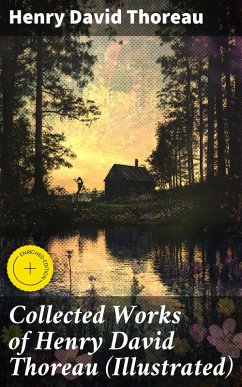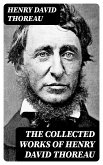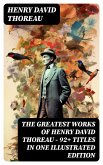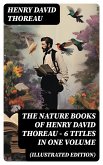The "Collected Works of Henry David Thoreau (Illustrated)" offers a comprehensive anthology of Thoreau's writings, bridging his profound philosophical musings and reflective natural observations with exquisite illustrations that enhance the reader's experience. The volume encompasses his seminal works, including "Walden" and "Civil Disobedience," showcasing Thoreau's mastery of literary style that fuses transcendentalist ideals with incisive social critique. As a foundational text of American literature, this collection invites readers to reflect on individualism, nature, and societal norms within the context of mid-19th century America. Henry David Thoreau (1817-1862) was a writer, philosopher, and naturalist whose passionate advocacy for simple living in natural surroundings was deeply influenced by his upbringing in Concord, Massachusetts, and his studies at Harvard University. His encounters with nature and his political convictions led him to articulate a vision of self-reliance and moral resistance, particularly in the face of social injustice, making his work profoundly relevant to contemporary readers seeking purpose and authenticity. I highly recommend this illustrated edition to anyone interested in the interplay between literature, nature, and society. Thoreau'Äôs distinct voice remains a timeless inspiration, urging readers to contemplate their own relationship with the world around them and to embrace the ethos of civil disobedience and introspection.
Dieser Download kann aus rechtlichen Gründen nur mit Rechnungsadresse in A, B, BG, CY, CZ, D, DK, EW, E, FIN, F, GR, H, IRL, I, LT, L, LR, M, NL, PL, P, R, S, SLO, SK ausgeliefert werden.









